Building Bridges Across the Great Lakes Region Through Live Radio

A live production of Generation Grands Lacs last month in Gisenye. This production brought youth together from the DRC, Rwanda, and Burundi.
After years of conflict in the border region between Rwanda and the Democratic Republic of Congo, peace continues to prove an elusive goal. The failure to implement a peace accord signed on March 23, 2009 has led to the most recent phase of a long and complex cycle of violence. In April of this year, fighters from the former CNDP rebel group, who had been integrated into the Congolese army (FARDC) through the accord, deserted and formed a new rebel group called the March 23 Movement, or M23, over this perceived failure. Shortly after this split, open conflict ensued.
On July 9th the border city of Goma in the DRC experienced a spate of attacks against Rwandan nationals. Ongoing fighting between M23 rebels and government forces exacerbated widespread violence in the North Kivu region. Allegations of Rwandan involvement in the fighting contributed to strong anti‐Rwandan sentiments in the provincial capital. Messages promoting violence were broadcast on some local media stations.
The power of popular media in influencing attitudes and beliefs is well-documented and, particularly in Africa, it has been shown to contribute to both conflict and to reconciliation. In this instance, a rapid and targeted response to the escalating violence was formulated by Search for Common Ground with its production of Generation Grands Lacs broadcast on Saturday, July 14th, 2012 at Mishapi Voice TV in Goma.
The live phone-in talk show provided an opportunity to facilitate discussion between young people on both sides of the border. Broadcast weekly across five radio stations in Rwanda, Burundi, and the Democratic Republic of Congo, it provides an opportunity for the region’s youth to engage with each other on issues and challenges that affect them all, regardless of where they live.
Each week, Generation Grands Lacs is broadcast live from one of five radio stations across the DRC, Rwanda, and Burundi, with production rotating between teams of journalists from all three countries. Issues addressed include gender, violence, identity, youth participation in political life, as well as issues of ethnicity and nationality, etc. The format includes studio guests, pre-recorded interviews, vox pop interviews(interviews with the general public), and music. The audience is encouraged to participate through phone, SMS and Facebook.
The theme on July 14th was“peaceful coexistence between communities in the Great Lakes region”. In response to the increase in violence, the episode sought to encourage dialogue, tolerance, and mutual understanding. Invited studio guests were Etienne Kambale, the president of a civil society organization in North Kivu, and Mondanga, a student of international relations at Goma University.
This particular program featured a vox pop piece on how to ensure peaceful coexistence between communities as well as an interview with the governor of North Kivu, Julien Paluku, who denounced the attacks and delivered a message of peace to the populace. Finally, the program also included an interview with Nestor Nkurunziza, former media coordinator of SFCG/DRC, and consultant in journalism. Spot messages aired during the program focusing on themes of “peaceful coexistence” and “positive patriotism.”
The show proved to be very popular, with listeners calling and texting to participate from Rwanda and the DRC. During his interview, Nestor Nkurunziza discussed how, in times of crisis, everything rests on communication. According to Nkurunziza, there are three levels on which communication occurs.
- The first level is that of political authority – the message that those in authority ought to deliver is one of unity rather than accusation.
- The second level is religious, as churches have access to a large number of people and can reach many with a message of mutual understanding .
- The third level is that of the media –it is important that local media are correctly informed about the situation so outlets can prevent rumors from spreading.

Live production of GGL at the peace camp in Gisenye. This camp was a three week program bringing youth from throughout the region together to learn about peacebuilding.
One caller, Freddy from Kigali, made the point that “War begins with words and ends with death; however, as war begins with words it ought to be ended with words instead – that is to say, dialogue; people should speak with each other, it is because you don’t speak that you engage in mutual suspicion.” Another listener from Butare commented that “to resolve conflict, communication is necessary between all the populations of the Great Lakes Region so that people can be united and empowered to help each other resolve their problems together.”
Since my master’s research focuses on radio listenership in Rwanda, this struck me as a perfect opportunity to see what people thought of this program. In an online survey I conducted for my project, 19 out of 31 respondents said they listened to Generation Grands Lacs. Of these, all of them responded yes to the question “Do you think this program helps to solve conflict or misunderstanding in the Great Lakes Region?” When asked why they thought this, one respondent said that the program helps “Because youth get the chance to talk about what matters to them and exchange ideas on how to deal with it.” Another said, “it helps because some of people who call sometimes talk about the way that program has transformed them and even made a change in their local communities.”

Participants in the production at Gisenye. Peace camp volunteers hailed from the DRC, Rwanda, and Burundi.
Fans of the Generation Grands Lacs Facebook page have equally positive comments. One stated “this type of encounter can greatly benefit youth relations, especially those of different nationalities; and moreover can help the spirit of friendship grow between young people across the Great Lakes Region and counteract future conflict.”
Media can be used to bridge divisions and bring messages of peace in situations of unrest, like that currently facing the Eastern DRC and its regional neighbors. As demonstrated by Generation Grands Lacs, this can be achieved through balanced programs that provide a space for participants from all sides to come together and communicate with each other.
Jeanne Spillane is currently pursuing an M.Sc. in Development Practice (MDP) at Trinity College Dublin and University College Dublin, in partnership with the National University of Rwanda. She is working with SFCG Rwanda as part of a research placement for MDP. Her research is looking at how Peacebuilding Radio Programs in Rwanda use ICT, particularly SMS and Social Media. She also holds an M.Phil. in International Peace Studies.



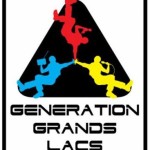
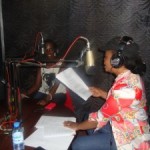
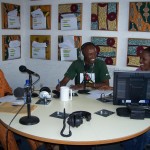
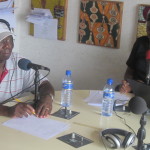
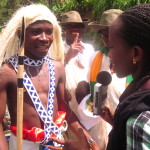
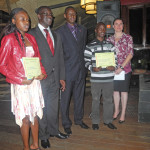


Have you ever thought about including a little bit more than just your articles?
I mean, what you say is valuable and everything.
Nevertheless imagine if you added some great photos or video clips to give your posts more, “pop”!
Your content is excellent but with pics and video clips,
this blog could definitely be one of the greatest in its
field. Excellent blog!
I never, ever imagined I would have to understand this thank goodness for
google